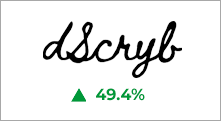We’ll increase conversions by
20-100+%
on your website.
Get a FREE Audit today
See how we can help your business increase conversion rates
The Ultimate Guide On How To Budget For Marketing Agencies And Consultants
Managing expenses is a crucial aspect of running any business, and it becomes even more essential when it comes to marketing agencies and consultants. Whether you’re a small business owner working with limited resources or heading up a larger organization, budgeting for marketing endeavors can be overwhelming.
But fear not! Our ultimate guide on how to budget for marketing agencies and consultants will provide you with the necessary tools and knowledge to plan your spending effectively. From tracking spending to allocating budgets, we’ve got you covered. So let’s dive in!
Budgeting For Marketing Agencies And Consultants
Budgeting is a crucial aspect of managing expenses and tracking spending, especially when it comes to marketing endeavors for small businesses or companies relying on agency services or consultants. By developing a solid budget plan, businesses can anticipate costs, allocate funds for different channels and services, determine ROI metrics, monitor and adjust the budget as needed, and avoid common mistakes while setting realistic expectations.
The Benefits Of Budgeting
One major benefit of budgeting for marketing agencies and consultants is the ability to manage expenses and track spending which is generally done during a conversion rate optimization audit. By creating a master budget template, you can easily monitor your expenditures and ensure that you are staying within your allocated funds. This also allows you to identify any areas where you may be overspending or underutilizing resources.
Another key advantage of budgeting is that it helps in determining realistic goals and setting expectations for marketing endeavors. When developing a budget, it’s important to take into account the anticipated costs for each campaign or tactic. With this knowledge, you can allocate budgets accordingly and make informed decisions about which channels will deliver the best return on investment (ROI). Plus, by monitoring ROI metrics closely over time, you can continuously optimize your strategy based on what works best for your business.
Common Mistakes To Avoid
When it comes to budgeting for marketing agencies and consultants, there are several common mistakes that business owners might make. One of the biggest mistakes is underestimating the costs associated with a successful marketing campaign. It’s important to factor in all expenses including creative services, advertising costs, digital marketing channels, and public relations efforts.
Another mistake is not considering ROI metrics when creating a budget. The goal of any marketing campaign should be to generate revenue and drive growth for your business. Without measuring ROI and adjusting your strategy accordingly, you may end up wasting money on ineffective campaigns.
Business owners should also avoid allocating too much or too little funds towards a specific channel or tactic without data-driven insights. This can result in missed opportunities or overspending on channels that don’t yield significant results. To avoid these pitfalls, it’s crucial to regularly monitor and adjust your budget based on performance data and market trends.
Setting Realistic Expectations
When setting a marketing agency budget, it’s crucial to set realistic expectations for what you can achieve with the resources at your disposal. This means taking into account your available funds and how they align with your desired goals and outcomes. It’s also important to acknowledge that results may not be immediate, and certain channels or tactics may require more time or investment than others.
Furthermore, it’s essential to understand the limitations of your business size and industry as well as any external factors that could affect your marketing endeavors. Setting unrealistic expectations can result in disappointment, wasted resources, and missed opportunities. Therefore, it’s best to develop a practical plan that takes into consideration all possible scenarios while staying flexible enough to make necessary adjustments along the way.
Overall, having realistic expectations when budgeting for marketing agencies is about finding a balance between ambition and practicality. By being honest about what you can achieve with your current resources while remaining open-minded towards new opportunities, you’ll be better equipped to create an effective strategy for promoting business growth without breaking the bank.
How To Develop Your Marketing Agency Budget
To develop your white label conversion optimization agency budget, start by identifying your goals and objectives, allocating funds for different channels and services, determining ROI metrics, monitoring and adjusting the budget as needed, and considering additional costs.
Identify Goals And Objectives
Identifying clear marketing goals and objectives is a crucial part of developing a marketing agency budget. As a business owner, you need to have an understanding of what you want to achieve with your marketing endeavors. One goal may be to increase leads by 25% or generate $1 million in revenue within the next year. Objectives must also be realistic and achievable.
Once you have identified your goals and objectives, allocate funds for different channels and services that will help achieve them. Consider investing more in high-impact tactics such as SEO or social media advertising if they align with your goals. Remember, it’s important not to spread yourself too thin across multiple channels – focus on the ones that will drive the most results.
While determining ROI metrics can sometimes feel like guesswork, doing so is essential when creating your marketing agency budget plan. By tracking return on investment through metrics such as website traffic or conversion rates, businesses can measure whether their strategies are delivering tangible results while allowing for adjustments along the way to maximize impact within cost constraints.
Allocate Funds For Different Channels And Services
When developing your marketing agency budget, it’s important to allocate funds for different channels and services. This means determining which marketing endeavors will be most effective in reaching your target audience and achieving your objectives. Some examples of channels and services to consider allocating funds towards include social media marketing, email marketing, pay-per-click advertising, content marketing, market research, and public relations.
Of course, the allocation of funds will depend on your business goals and budget constraints. It’s essential to carefully analyze each channel or service’s potential ROI before committing significant resources. You should also consider factors such as the level of competition within the industry for each channel or service you plan on using.
Additionally, think about how you can use multiple channels in a complementary way to achieve optimal results while avoiding duplicating efforts across platforms. With careful consideration of which channels are appropriate for your specific needs combined with effective budgeting strategies like tracking spending through Google Sheets template or other financial planning tools; you’ll be able to allocate budgets effectively without overspending unnecessarily.
Determine ROI Metrics
One of the key factors in developing a marketing agency budget is determining ROI metrics. This involves identifying the specific goals and objectives of each marketing campaign or initiative, as well as how success will be measured. For example, if your goal is to increase website traffic, you may track metrics such as page views and bounce rates to determine how effective your campaigns are at achieving this goal.
Once you have identified your ROI metrics, it’s important to monitor them regularly throughout the campaign. This allows you to make adjustments and optimize your spending for maximum impact. It also helps ensure that you’re getting the most out of your marketing dollars by focusing on tactics that deliver real results.
Ultimately, taking a data-driven approach to measuring ROI can help businesses make more informed decisions about their overall marketing strategy. By analyzing the data and adjusting their approach based on what works best, they can maximize their return on investment over time and drive sustained growth for their business.
Monitor And Adjust The Budget As Needed
It’s important to understand that creating a marketing budget is not a one-time process. You’ll need to monitor and adjust your spending regularly as campaigns progress, goals evolve, and strategies change over time. This involves keeping track of the ROI metrics you’ve set up for each channel or service, so you can measure their effectiveness against the costs incurred.
If a particular tactic isn’t producing the desired results or is eating into your budget more than intended, it may be time to shift that allocation elsewhere. Conversely, if something unexpectedly performs well beyond expectations, consider increasing its investment while reducing funds from less successful areas.
In order to make these adjustments accurately and effectively over time, it’s important to stay on top of your marketing analytics data (such as ROI reports) and update your master budget template regularly. By doing so, you can make sure you’re getting the most out of every dollar spent on marketing efforts while staying within overall financial constraints.
Consider Additional Costs
When it comes to budgeting for marketing agencies and consultants, it’s important not to overlook additional costs that may arise. Beyond the basic costs of advertising and promotions, there are several other expenses that can quickly add up. For example, you may need to invest in new software or equipment to support your marketing efforts. You may also need to allocate funds for market research or hire additional team members with specialized skills.
It’s important to carefully consider these additional costs when developing your marketing agency budget. By anticipating these expenses upfront and allocating appropriate funds, you can avoid unexpected surprises later on. It’s also a good idea to regularly review your spending and adjust your budget as needed based on changes in the market or shifts in business goals.
Ultimately, taking a comprehensive approach to budgeting is key for long-term success in the world of marketing. By considering all of the potential costs associated with your endeavors and planning accordingly, you can maximize your return on investment while avoiding common pitfalls that could derail even the most well-intentioned campaigns.
Tips For Maximizing Your Marketing Budget
To maximize your marketing budget, leverage data and analytics to identify what channels and tactics are driving the most ROI, focus on high-impact opportunities that align with your business goals, regularly optimize your campaigns for efficiency, and build strong relationships with vendors and partners who can help you achieve more with less.
Leverage Data And Analytics
Data and analytics are essential tools for marketing agencies and consultants when it comes to budgeting. By leveraging these tools, businesses can identify which channels are performing best, where their marketing dollars should be allocated, and how to optimize their campaigns for maximum ROI. To make the most of your data, consider investing in software that tracks engagement metrics across all platforms. This will give you a comprehensive view of your audience’s behavior so that you can adjust your approach accordingly.
Another way to leverage data is by conducting market research. This helps businesses understand what resonates with their target audience and adapt their messaging accordingly. With this information, they can create more targeted campaigns that yield better results or tailor content to specific segments of their audience.
In summary, utilizing data and analytics allows businesses to take an evidence-based approach in developing their marketing budgets. It enables them to gain insights into customer behavior, refine strategies based on real-time feedback, and ultimately maximize return on investment while staying within budget constraints.
Focus On High-Impact Channels And Tactics
To make the most of your marketing budget, it’s important to focus on high-impact channels and tactics. This means investing more in the channels that are proven to generate results for your business. For example, if you’re running an e-commerce site, investing in SEO and paid search could be a smart move since these channels tend to have a strong ROI.
Another key factor is understanding your target audience and where they spend their time online. Depending on your niche, social media may be a great way to reach potential customers. Alternatively, content marketing or email campaigns might be more effective at driving conversions depending on how engaged your audience is with those channels.
By focusing on high-impact channels and tactics you’ll get the most out of every dollar spent on marketing. With time and experimentation, you can refine your approach even further by eliminating underperforming strategies and doubling down on what works best for your business.
Optimize For Maximum ROI
Once you have allocated your budget to different marketing channels and services, it’s important to optimize for maximum ROI. One way to do this is by focusing on high-impact channels and tactics that are proven to generate results. This means identifying which channels are driving the most leads or sales and doubling down on those efforts.
Additionally, you can leverage data and analytics to determine which campaigns are performing well and which ones need improvement. By regularly monitoring your metrics, you can adjust your strategy as needed to get the best return on investment.
Another key factor in optimizing for maximum ROI is building strong relationships with vendors and partners. This allows you to negotiate better deals, access new resources or technologies, and ultimately save money while still achieving your marketing goals.
By taking a strategic approach towards optimizing for maximum ROI, business owners can ensure that their marketing budget is being used effectively towards achieving their overall objectives.
Build Strong Relationships With Vendors And Partners
It’s important for marketing agencies and consultants to build strong relationships with their vendors and partners. This helps in negotiating better deals, maintaining a healthy partnership, and leveraging each other’s expertise for mutual growth.
Having a good rapport with your suppliers can lead to cost-effective solutions that fit your budget. You can also form alliances with complementary businesses like graphic design firms or web developers to benefit from holistic services at discounted prices. This is especially helpful when you’re starting out or have limited funds.
Strong partnerships also help create trust between the agency/consultant and clients. If the client sees that you have reliable vendor/partner relationships, they are more likely to trust your recommendations on utilizing these resources for their own projects. Investing time into building mutually beneficial partnerships will only pay dividends in the long run.
Having A Strategic Marketing Budget Plan For Business Success
Having a strategic marketing budget plan is essential for any business that wants to succeed in the modern marketplace. With so many competitors vying for attention, it’s important to allocate resources wisely and focus on high-impact tactics that will generate results.
A well-planned marketing budget can help you anticipate costs, manage spending, and make informed decisions about which endeavors are worth pursuing. By setting realistic goals and objectives early on, you’ll be better equipped to track progress and adjust your strategy as needed.
Ultimately, a strategic marketing budget plan can make all the difference when it comes to achieving business success. By investing in campaigns that align with your brand strategy and deliver measurable ROI, you can build brand recognition, attract new clients or customers, and grow your revenue over time.
Conclusion
In conclusion, budgeting for marketing agencies and consultants is an essential part of any successful business plan. It allows you to track your spending, manage expenses effectively, and allocate funds to different channels and services. By developing a strategic marketing budget plan, you can anticipate costs, identify goals and objectives, monitor ROI metrics, and adjust as needed.
Remember to focus on high-impact channels that deliver the best results while optimizing for maximum ROI. Leveraging data analytics is crucial in ensuring that every dollar spent on advertising counts towards achieving your business goals.
A well-planned marketing budget will help you stay ahead of the competition by finding new clients through market research, creative services or even public relations. With careful planning and thoughtful execution of marketing campaigns such as content marketing, social media marketing or pay-per-click advertising; a business can achieve its desired growth trajectory.
So start today by using Google Sheets template or any financial planning tool to craft your master budget template! Allocate budgets wisely among key categories such as Advertising expenses or Professional services fees so that you could ensure success with each campaign!
With these tips & strategies shared in this guide on how to budget for Marketing Agencies & Consultants efficiently; You’re now ready to take control of your finances once more – managing them like never before! Good luck!









0 Comments